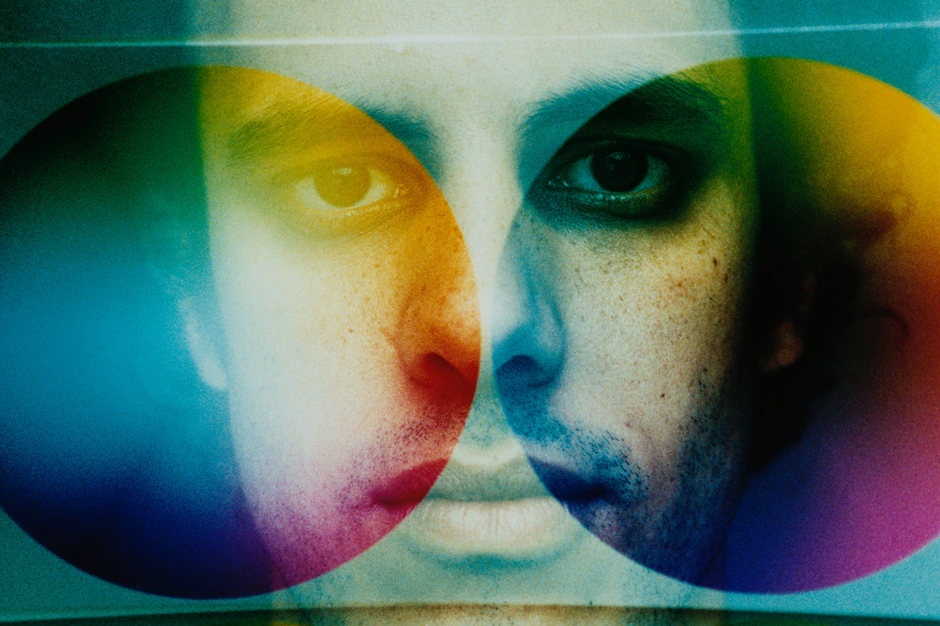Charlotte OC, “Hangover (Moodymann Remix)” (Stranger Records)
Detroit’s Moodymann (née Kenny Dixon Jr.) is one of house music’s most imitated producers, but a new remix for the British singer Charlotte OC will give copycats a run for their money. Gone are the drowsy Rhodes chords and shuffling disco breaks, long the hallmarks of his style; instead, Dixon avails himself of sinewy coos and staccato bleeps to turn out an abstracted, minimalist take on pop that’s somehow brittle and rubbery all at once, stretched taut until it explodes into drum fills and dub delay. It’s one of the most un-Moodymann-sounding things he’s done in quite some time, which is ironic, if only because the original version of “Hangover” is full of the kinds of sounds — live drums, electric bass, natural reverb — that he typically favors. One suspects that the people behind Stranger Records may have had something very different in mind when they commissioned the remix — and also that their jaws must have dropped when they heard what he turned in. It’s a masterpiece of futuristic disco. The label is planning a full digital release; for now, hear it at The Fader.
Theo Parrish, 71st & Exchange Used to Be (Sound Signature / The Trilogy Tapes / Palace Skateboards)
While Moodymann has long been king of the roller disco, his buddy Theo Parrish takes to the half pipe on his latest release. Symbolically, anyway: It’s a co-release between Parrish’s own Sound Signature label, London’s The Trilogy Tapes, and Palace Skateboards, a London company with a decidedly non-traditional take on street culture. (For instance, they shoot their skate videos on VHS, and Palace’s Lev Tanju recently designed decks inspired by an exhibition at Tate Britain.)
As with Moodymann’s Charlotte OC remix, we’re in for a surprise. Parrish, as tender as he can be, is no stranger to the noisier side of the dance floor — see, for instance, last year’s baffling “Any Other Styles” — but he takes the opposite tack here, despite the fact that the Trilogy Tapes’ recent run has verged on L.I.E.S. levels of lo-fi and fucked up. These three tracks are as clear as a cold mountain stream, and as controlled as a dancer’s limbs; they place knotty Rhodes chords at the center, and focus their energies mainly on disentangling melodic threads and teasing them out against a backdrop of shuffling, analog drum machines. “71st & Exchange Used to Be…” stacks sets of fifths until they tremble beneath the weight; the handclaps are dubbed to delirium here, but the drums are bone dry on “Blueskies Surprise” and “Petey Wheetfeet,” framing the keys in stark relief. The latter is a gnarly take on Herbie Hancock funk, with a low end so thick you risk losing your shoe in it; the former, with drifting string pads reminiscent of Andrés’ “New For U,” is as airy and perfect as its title promises, and could easily be three times as long.
//player.vimeo.com/video/81385372
Unknown, The Buddy System 01 (The Buddy System Project)
Thanks to 2013’s hyper-calculated album rollouts from Daft Punk, Beyoncé, et al — much innovative, very buzz, so mindshare — we’re clearly headed for a spell in which artists across the spectrum go in hard on viral gimmicks and conceptual hijinks. There’s really nothing we can do about it, except to stop RTing, and of course that’s not going to happen. And it’s probably OK, really. Some campaigns are both interesting and effective, even if it’s unclear whether these are the convulsions of a dying industry or the thrashing motions of some all-powerful new Frankenstein of a media monster that’s about to devour us all.
I’m especially interested, however, in how deeply underground artists are beginning to play with digital formats not just as a means of self-promotion, but also as experiments in form. I don’t know if it’s a coincidence or not, but Bandcamp is becoming a common platform for these sorts of things. Last week I wrote about a new series of limited-edition (really, limited-time) EPs from Hprizm, a.k.a. High Priest of Antipop Consortium, that will be taken offline periodically and replaced by new material. Now Philadelphia’s King Britt has announced the Buddy System Project, which takes the opposite approach to the acceleration of everyday life. Records in the series will initially be released anonymously under the collective Buddy System Project alias; Britt says that he’ll announce the various artists responsible after the first three EPs. So it’s anonymity with a twist. Instead of playing to the panicked diggers’ mentality — “Buy this unknown white-label now, because you’ll never see it again” — it encourages listeners to chill the fuck out and enjoy the music for what it is.
And in the case of the first release, it’s very enjoyable indeed, and perfectly attuned to slowing down. “Bits” and “Waking Life,” suffused with analog synths and what sound like real strings and maybe real piano, are both deep, pulsing ambient that nod to both the early days of Astralwerks and the more recent synth-Kraut revival, with echoes of Mark Templeton, Vladislav Delay, Global Communication, and Kompakt’s Pop Ambient series; “Bits (Remix)” adds tough, dubby drum machines to the luminous murk and goes somersaulting through the depths, like a peak-time techno rave at the bottom of a lake.
Crazy Bald Heads, First Born EP (Text Records)
Finally, an even more powerful reminder that good things come to those who wait, via a stunning reissue on Four Tet’s Text label. Crazy Bald Heads’ “First Born” is one of those records that defines dance music’s lifeblood — the fleeting, blink-and-you’ll-miss-’em 12-inches that land like raindrops in the ocean, disappear without a trace, yet somehow keep sending ripples outward until eventually, years later, they finally make landfall. (It’s sort of akin to chaos theory’s butterfly-fueled tsunami effect.) Back in 1998, a couple of kids who called themselves Crazy Bald Heads (not to be confused with Ed Banger’s Krazy Baldhead) made the rounds of London’s dance-music record stores, selling handfuls of their debut single direct to shopkeepers. Four Tet’s Kieran Hebden bought a copy from Sounds of the Underground on the same day the record came in. “It came in a handmade sleeve with bizarre artwork for a garage 12-inch, and the music on the record sounded incredible,” he writes in the press release for the reissue. “A wicked shuffling beat with amazing chopped samples flying in and out all over the place. It was on quite a different vibe to the other garage records around and stopped me in my tracks.”
Hebden got in touch with the group’s members and began working on plans for a reissue on a bigger label, but by the time he had finished his remix, the group had split up and the whole project was shelved. Fast-forward eight years: In 2011, wanting to use both “First Born” and his own remix in his FabricLive mix, Hebden finally tracked down one of the Crazy Bald Heads, all of whom had long disappeared from the scene. (“Some of the original garage DJs like Zed Bias remembered the record, but no one had any contact details,” writes Hebden. “I now realised that this was one of the weirdest and most unknown garage records from the late 90s.”) Three years after his FabricLive mix, all three tracks from the original First Born EP finally get their chance to shine again, rounded out by Four Tet’s remix.
The record sounds as ahead of its time now as it must have then. The blunt-nosed bass line and the skipping groove, with its hard, declarative rimshots, clearly identify the tune as a product of the 2-step era, but it also sounds unlike almost anything else from the time, making use of easy-listening vocal harmonies, jazz flute, swirling Detroit-techno synthesizers, and lumpy congas that lurch through the mix. Another point of difference from most of the tracks of its day is its length: The original mix is more than eight minutes long, and the “Champagne Breakfast Mix,” which goes ham on Todd Edwards-style cut-up vocals, runs more than nine. (The record’s shortest cut, the “Lullaby in Dub,” switches between a muted house groove and sampled dub reggae, and sounds very much like the kind of thing DJ Koze makes today.) A world away from the short, sharp, shocks of eight-bar garage, “First Born” made the most of its undulating arrangements, coming on like a slow-release capsule. Sixteen years later, its effects are still kicking in.
https://youtube.com/watch?v=hkF89p6y2qo%3Fversion%3D3





